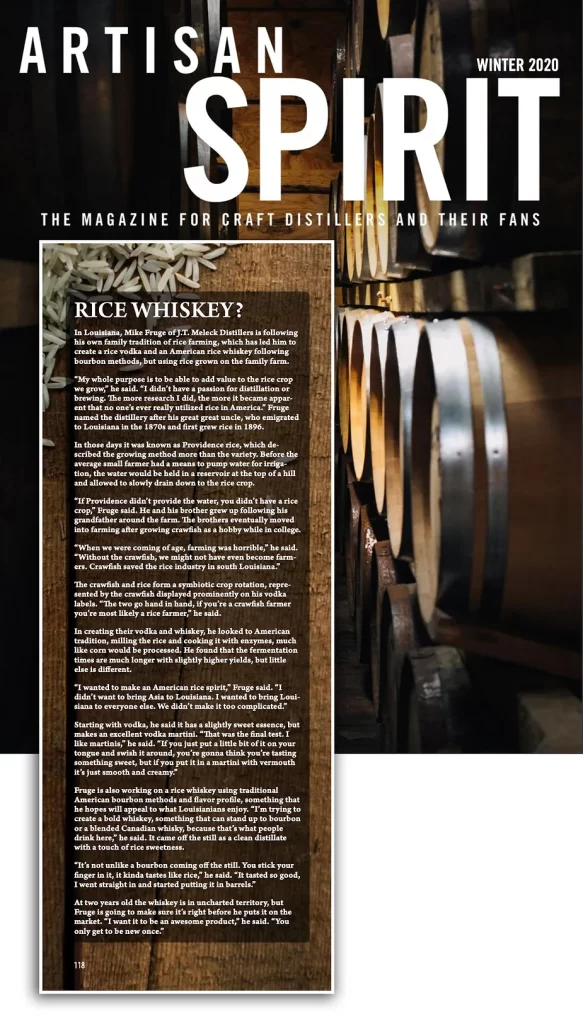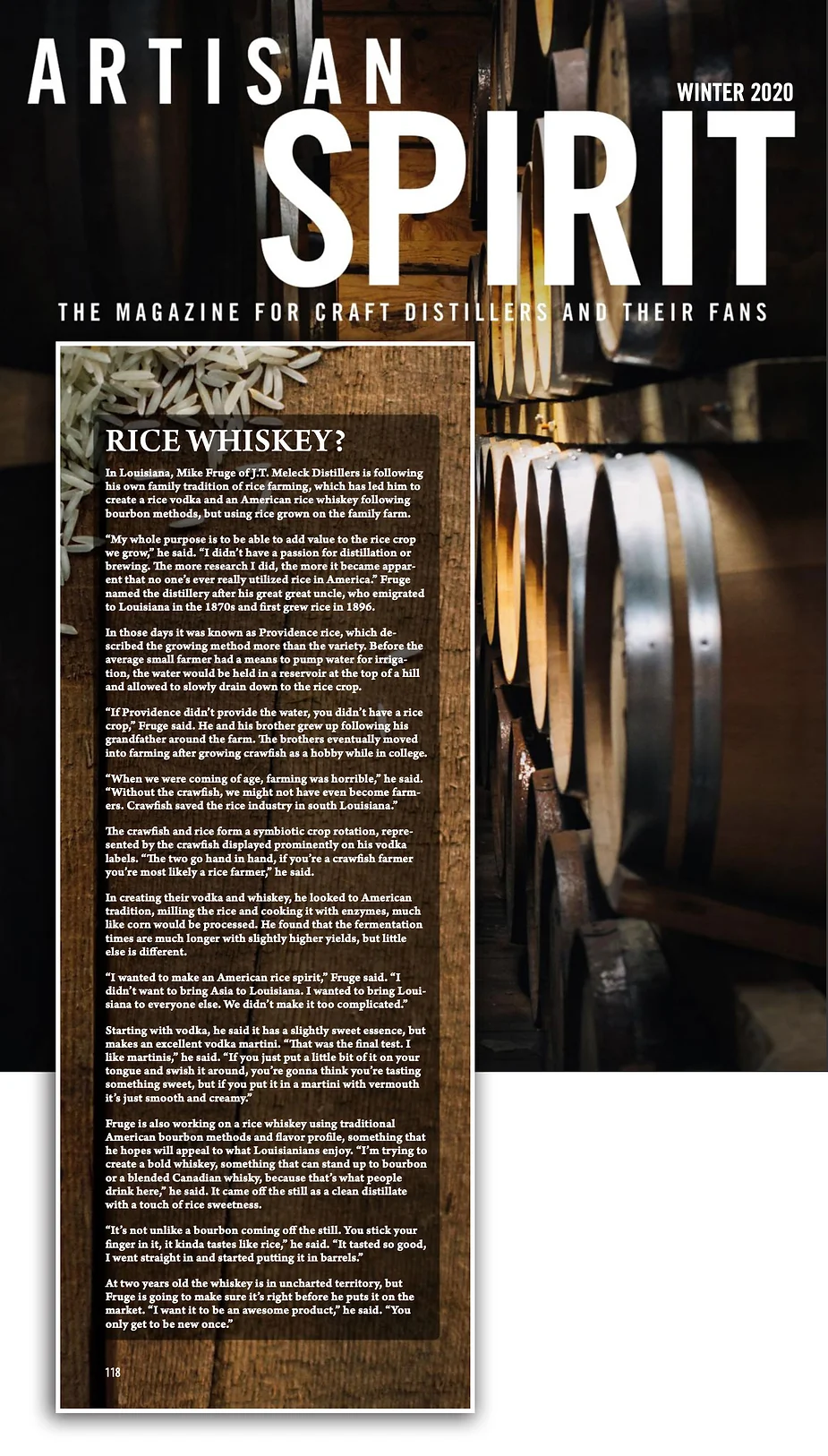Artisian Spirits Magazine (Winter 2020 issue)
Written by Gabe Toth
In Louisiana, Mike Fruge of JT Meleck Distillers is following his own family tradition of rice farming, which has led him to create a rice vodka and an American rice whiskey following bourbon methods, but using rice grown on the family farm.
“My whole purpose is to be able to add value to the rice crop we grow,” he said. “I didn’t have a passion for distillation or brewing. The more research I did, the more it became apparent that no one’s ever really utilized rice in America.” Fruge named the distillery after his great great uncle, who emigrated to Louisiana in the 1870s and first grew rice in 1896.
In those days it was known as Providence rice, which described the growing method more than the variety. Before the average small farmer had a means to pump water for irrigation, the water would be held in a reservoir at the top of a chill and allowed to slowly drain down to the rice crop.
“If Providence didn’t provide the water, you didn’t have a rice crop,” Fruge said. He and his brother grew up following his grandfather around the farm. The brothers eventually moved into farming after growing crawfishes a hobby while in college.
“When we were coming of age, farming was horrible,” he said. “Without the crawfish, we might not have even become farmers. Crawfish saved the rice industry in South Louisiana.”
The crawfish and rice form a symbiotic crop rotation, represented by the crawfish displayed prominently on his vodka labels. “The two go hand in hand, if you’re a crawfish farmer you’re most likely a rice farmer,” he said.
In creating their vodka and whiskey, he looked into American tradition, milling the rice and cooking it with enzymes, much like corn would be processed. He found that the fermentation times are much longer with slightly higher yields, but little else is different.
“I wanted to make an American rice spirit,” Fruge said. “I didn’t want to bring Asia to Louisiana. I wanted to bring Louisiana to everyone else. We didn’t make it too complicated.”
Starting with vodka, he said it has a slightly sweet essence, but makes an excellent vodka martini. “That was the final test. I like martinis,” he said. “If you just put a little bit of it on your tongue and swish it around, you’re gonna think you’re tasting something sweet, but if you put it in a martini with vermouth it’s just smooth and creamy.”
Fruge is also working on a rice whiskey using traditional American bourbon methods and flavor profile, something that he hopes will appeal to what Louisianians enjoy. “I’m trying to create a bold whiskey, something that can stand up to bourbon or a blended Canadian whisky, because that’s what people drink here,” he said. It came off the still as a clean distillate with a touch of rice sweetness.
“It’s not unlike a bourbon coming off the still. You stick your finger in it, it kinda tastes like rice,” he said. “It tasted so good, I went straight in and started putting it in barrels.”
At two years old the whiskey is in uncharted territory, but Fruge is going to make sure it’s right before he puts it on the market. “I want it to be an awesome product” he said. “You only get to be new once.”
#ricevodka #ricespirit #ricewhiskey #jtmeleck @jtmeleck

